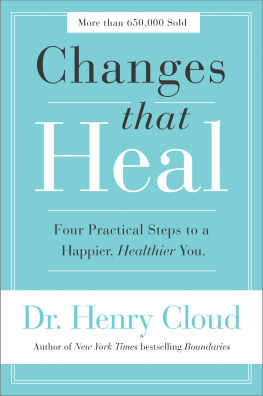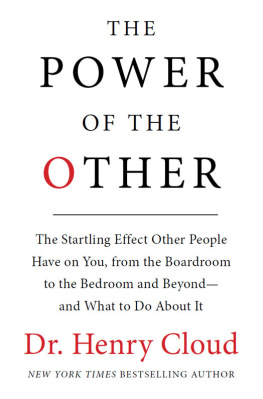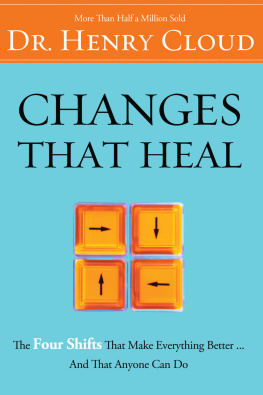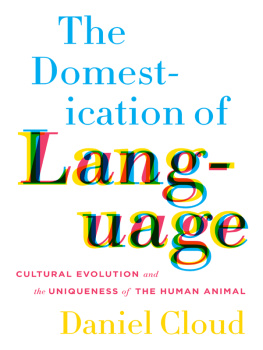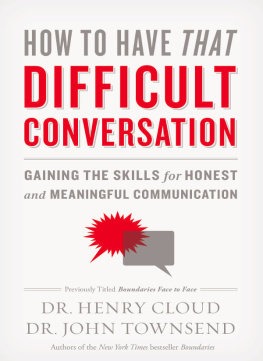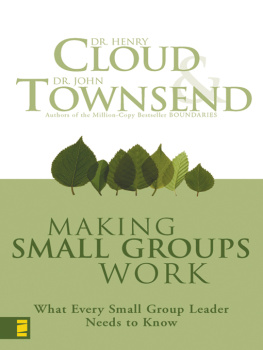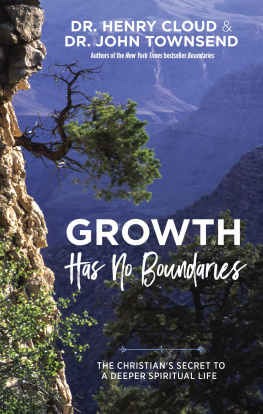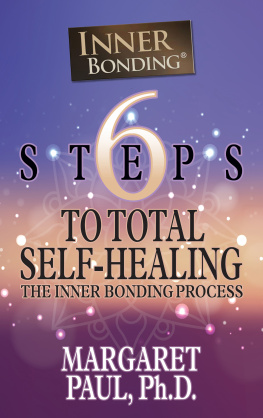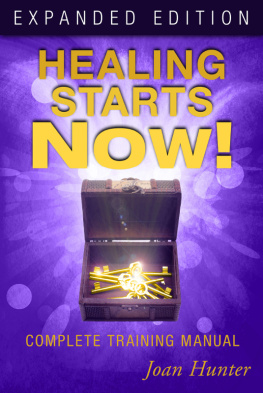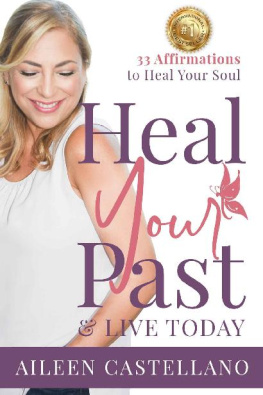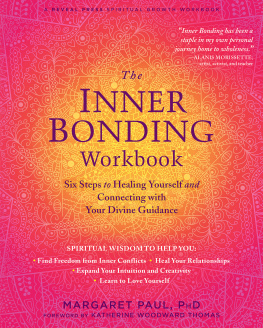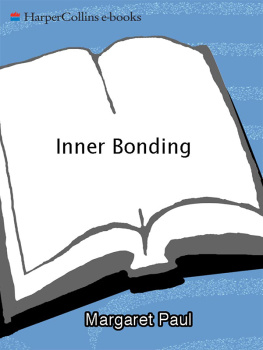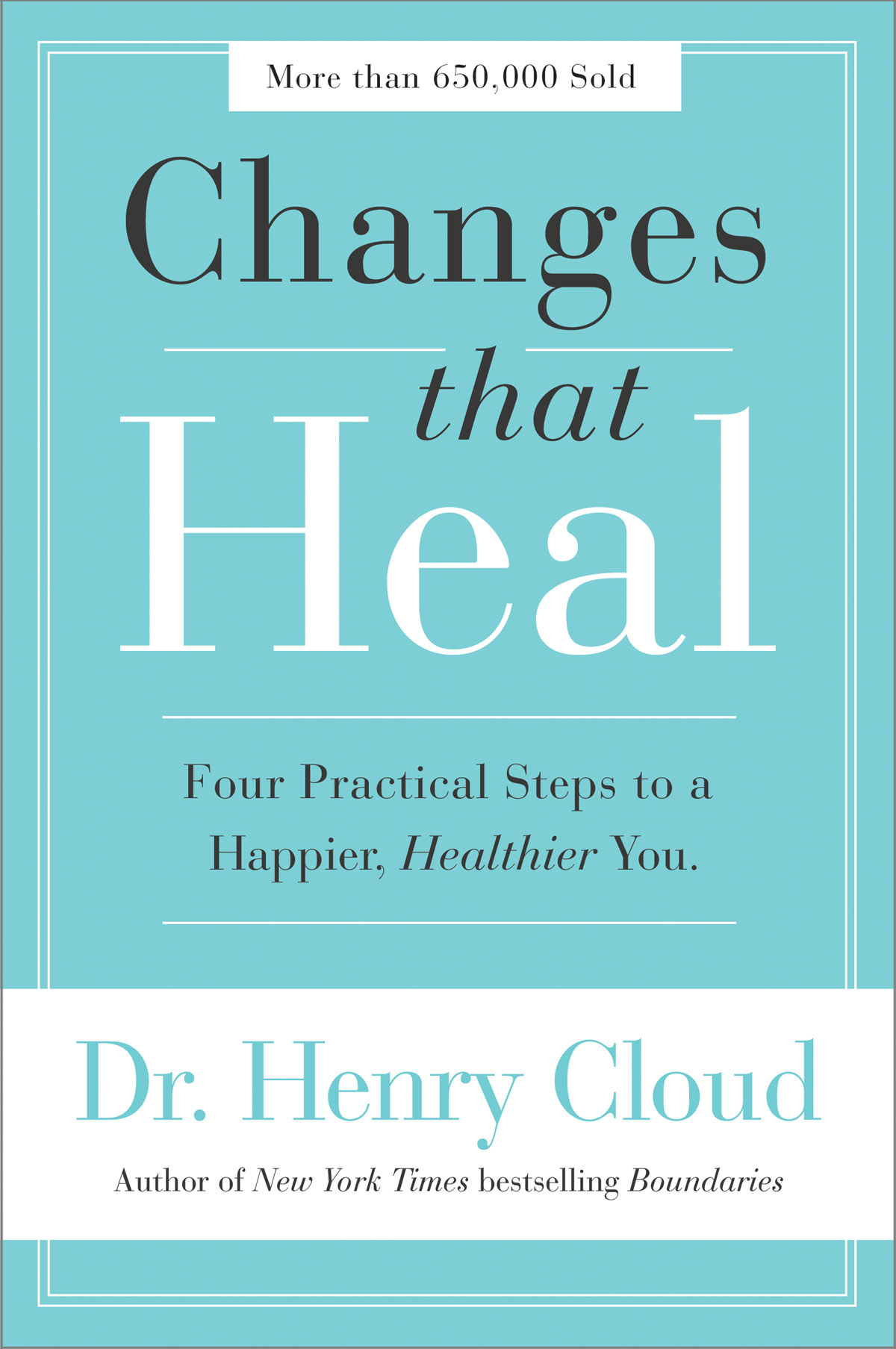Contents
Guide
I did not set out to write this book. It is the product of a lot of people, without whose input this book would not exist. The ideas presented here are composites of many experiences over the last fifteen years that involve faithful servants of Jesus Christ, and I would like to acknowledge some of the persons specifically.
Dr. John Townsend, my friend and associate, has been instrumental in the development of the model presented in this book. Through many hours of dialogue and team teaching, his input and thinking have added much to my understanding of Scripture and of emotional life. I am indebted to him for the loyalty of his friendship, the discipline of his professional life, and the example of his heart, which is attuned to the hurts of others. We have taught this material together for several years, and there has never been a single presentation where some idea of his has not influenced my thinking. I am grateful for his involvement in the concepts presented here.
Dr. John Carter deserves many thanks for introducing me to the understanding of what an incarnational gospel really means, and to the understanding of the value of relationship at the center of any true scholarship. He was a model instructor at Rosemead Graduate School, and his continuing input over the years has shown me that Jesus holds all understanding in his hand.
Dr. Phil Sutherlands model of a wisdom perspective on the Scriptures gave me new lenses through which to approach the Bible, and significantly helped me to discover new wineskins that could contain the true miracle of therapy. Everything that I think about the ways that humans grow contains the seeds of his perspective. I am thankful for his input into the early manuscript as well.
Dr. Bruce Narramores thinking on the concepts of guilt and conscience, as well as on a process understanding of growth, were invaluable to me in my training. His commitment to training professionals has borne fruit for the last twenty years.
I will be forever grateful to Dr. Frank Minirth and Dr. Paul Meier, who fifteen years ago encouraged me to go into the field of helping. If it were not for them, I would certainly be doing something else with my life. And I am grateful to Dr. Althea Horner for her supervision and humanity. Her thinking about how people grow has been more than helpful to me as I have developed my own thinking. She has shown me that psychoanalysis must bow to love. Dr. Doug Wilson deserves special thanks for giving me a place to begin practice and for encouraging me to integrate that practice into ministry, as do the rest of CORE: Dr. Michele McCormick, Monte Pries, Ann Huffman.
Campus Crusade for Christ deserves special thanks for the development of this book. It was under their original request that this material was developed and envisioned. Loren Lilliestrand, then U.S. field director, put the original project together, and deserves much credit for its coming to fruition. In addition, other Crusade staff members have been very encouraging in the development of this work. Special thanks go to Mary Graham for thinking that this could be used in training, and Melanie Ahlquist for reading the manuscript.
The staff at the Minirth-Meier Clinic West have been superior models with whom to work in recent years. Their continued commitment to healing in the lives of others has encouraged me professionally as well as personally. I love seeing the fruits of their daily gifts to others. Dr. Dave Stoop has been a constant encouragement in the writing of this book, and his input as he taught the material with me was invaluable. Thanks go to him for helping bring metaphor to life. Thanks also go to the Friday group for their application of faith to life.
Also Id like to thank Dr. Anita Sorenson for reading the manuscript and making some helpful observations. I appreciate the support that Jana Swanson has offered personally and for interacting with the material.
Thanks to Scott Bolinder for believing in the book and for agreeing to publish this revised edition, to Sandy Vander Zicht for her thoughtful and meticulous work in making the manuscript more user friendly, to the rest of the Zondervan team for their encouragement and welcome, and to Sealy Yates for all of his encouragement and support and for the invaluable role he plays in the lives of Christian authors.
I am grateful to Maureen Price, Jody Coker, Lisa Leets, and the Growth Skills Foundation for their incredible work in getting this message to so many pastors and churches over the years. And many thanks to all the churches that have used Changes That Heal to help so many people.
If anything comes through in the message of this book, it is that the body of Christ is the only place in which we grow. My community of friends has been the place where I have grown into the concepts presented here. They deserve special thanks: Dr. Edward Atkinson for being a true friend through the years and showing me the Lord when he was not easily found; Bill and Julie Jemison for taking a new Christian in and walking through the early days of faiththeir love and support will never be forgotten; Guy and Christi Owen for their supreme ability to produce a safe harbor for me; Toby Walker for keeping theology practical and being a truly giving friend; and my parents, whose early and sustained commitment to me have imparted much toward my ability to see God as good.
E very week I see Christians who are suffering from a whole range of emotional problems: anxiety, loneliness, grief over broken relationships, resentment, and feelings of inadequacy. Often they have been struggling with these problems for years. They are people in pain.
The church is split on how to deal with these hurting people. Those on one side of the issue say that people who struggle emotionally are in sin. They dont have enough faith, are not obedient, or dont spend enough time in the Word. These people tend to blame the hurting person for his or her pain.
The answers Christians on this side of the argument tend to give sound a lot like the ones Job received from his friends. God is trying to teach you something. Look at the blessings you still enjoy. God is testing you. Give thanks in spite of your circumstances. The speeches of Jobs three friends contain elements of truth, but do not often help the person in pain.
A despairing person should have kindness from his friend, said Job, so that he does not forsake the fear of the Almighty (Job 6:14 NASB). Job recognized, as only a person in pain can do, that simple answers not only fail to relieve pain, they can literally drive a person further away from God. The hurting person who takes this sort of advice to heart often has two problems instead of one: the pain she originally had, plus the guilt over not being able to apply the answers she was given.
The help offered to Christians in emotional pain over the years has done untold damage and has led many to reach the conclusion Job did: You smear with lies; You are worthless physicians. O that you would be completely silent, And that it would become your wisdom! (Job 13:45 NASB).
Faced with this kind of help, sufferers either learn to fake healing to remain in the church, or leave the church, deciding that their faith provides little solace for their emotional pain.
People on the other side of the issue reach out and try to touch the pain of hurting people. Looking for answers that workand not finding them in the churchthey turn to psychology. Often psychological methods succeed, and hurting people find relief. But now these people are in a quandary. Was it God or psychology that provided the cure? They know that the relief is from God, but there seems to be no biblical system by which to defend it. They just know that it works.

